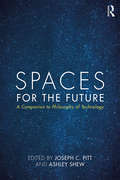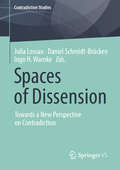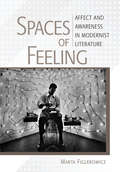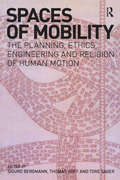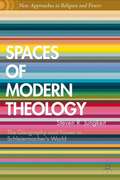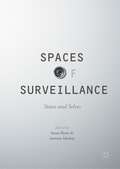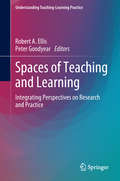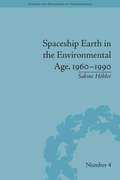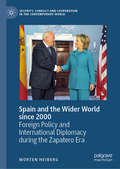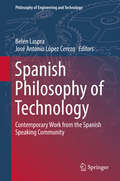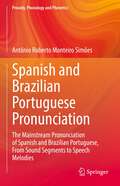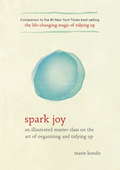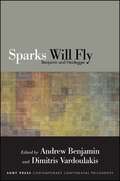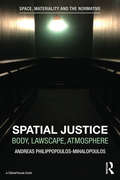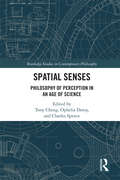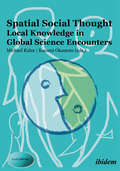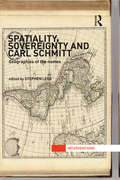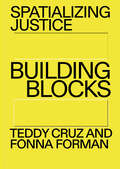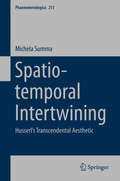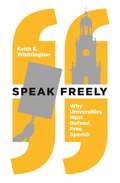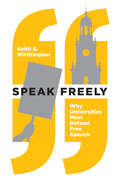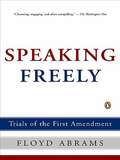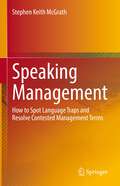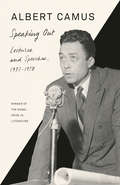- Table View
- List View
Spaces for the Future: A Companion to Philosophy of Technology
by Joseph C. Pitt Ashley ShewFocused on mapping out contemporary and future domains in philosophy of technology, this volume serves as an excellent, forward-looking resource in the field and in cognate areas of study. The 32 chapters, all of them appearing in print here for the first time, were written by both established scholars and fresh voices. They cover topics ranging from data discrimination and engineering design, to art and technology, space junk, and beyond. Spaces for the Future: A Companion to Philosophy of Technology is structured in six parts: (1) Ethical Space and Experience; (2) Political Space and Agency; (3) Virtual Space and Property; (4) Personal Space and Design; (5) Inner Space and Environment; and (6) Outer Space and Imagination. The organization maps out current and emerging spaces of activity in the field and anticipates the big issues that we soon will face.
Spaces of Dissension: Towards a New Perspective on Contradiction (Contradiction Studies)
by Julia Lossau Daniel Schmidt-Brücken Ingo H. WarnkeThis volume focusses on contradiction as a key concept in the Humanities and Social Sciences. By bringing together theoretical and empirical contributions from a broad disciplinary spectrum, the volume advances research in contradiction and on contradictory phenomena, laying the foundations for a new interdisciplinary field of research: Contradiction Studies. Dealing with linguistic phenomena, urban geographies, business economy, literary writing practices, theory of the social sciences, and language education, the contributions show that contradiction, rather than being a logical exemption in the Aristotelian sense, provides a valuable approach to many fields of socially, culturally, and historically relevant fields of research.
Spaces of Feeling: Affect and Awareness in Modernist Literature
by Marta FiglerowiczCan other people notice our affects more easily than we do? In Spaces of Feeling, Marta Figlerowicz examines modernist novels and poems that treat this possibility as electrifying, but also deeply disturbing. Their characters and lyric speakers are undone, Figlerowicz posits, by the realization that they depend on others to solve their inward affective conundrums—and that, to these other people, their feelings often do not seem mysterious at all.Spaces of Feeling features close readings of works by Virginia Woolf, James Baldwin, John Ashbery, Ralph Ellison, Marcel Proust, F. Scott Fitzgerald, Sylvia Plath, and Wallace Stevens. Figlerowicz points out that these poets and novelists often place their protagonists in domestic spaces—such as bedrooms, living rooms, and basements—in which their cognitive dependence on other characters inhabiting these spaces becomes clear. Figlerowicz highlights the diversity of aesthetic and sociopolitical contexts in which these affective dependencies become central to these authors' representations of selfhood. By setting these novels and poems in conversation with the work of contemporary theorists, she illuminates pressing and unanswered questions about subjectivity.
Spaces of Mobility: Essays on the Planning, Ethics, Engineering and Religion of Human Motion
by Sigurd Bergmann Tore Sager Thomas A. HoffHuman mobility is dramatically on the rise; globalization and modern technology have increased transportation and migration. Frequent journeys over large distances cause huge energy consumption, severely impact local and global natural environments and raise spiritual and ethical questions about our place in the world. 'Spaces of Mobility' presents an analysis of the socio-political, environmental, and ethical aspects of mobility. The volume brings together essays that examine why and how modern modes of transport emerge, considering their effect on society. The religious significance of contemporary travel is outlined, namely its impact on pilgrimage, Christology and ethics. The essays examine the interaction between humans and their surroundings and question how increased mobility affects human identity and self-understanding. 'Spaces of Mobility' will be of interest to students and scholars seeking to understand the impact of mobility on modern culture and society, the ethics behind contemporary transport systems and the conditions of immigrants in a world of constant travel.
Spaces of Modern Theology
by Graham Ward Steven R. JungkeitAs stories of borders, territorial disputes, and migration have escalated in recent years, so too space has emerged as a critical concept in theoretical literature. This book explores the imagination of space at the dawn of modern, liberal theology in the writings of Friedrich Schleiermacher. Schleiermacher wrote against the backdrop of expanding European colonialism and nationalism, providing a powerful ethics of space for a rapidly shrinking planet. Selectively appropriated, Schleiermacher's spaces of modern theology can be a valuable contribution to contemporary attempts to theorize the importance of space and place in human geographies.
Spaces of Surveillance: States and Selves
by Susan Flynn Antonia MackayThe unique character of our time is increasingly defined as one of surveillance - a period of being watched and policing ourselves and others. Coupled with this, technologies have permeated throughout our lives, both internally and externally, challenging our understanding of privacy, subjectivity and the notion of the individual. Have these developments impacted upon our understanding of geographical and bodily spaces? Has this changed our ability to understand selves, others and what it means to be 'real'? This collection of essays, from a range of disciplines including photography, art, film and literature, aims to analyze the manner in which surveillance has permeated our society and in turn, impacted upon our identity.
Spaces of Teaching and Learning
by Peter Goodyear Robert A. EllisThis integrated collection of perspectives on the spaces of teaching and learning uses ‘learning space’ to place educational practice in context. It considers the complex relationships involved in the design, management and use of contemporary learning spaces. It sheds light on some of the problems of connecting the characteristics of spaces to the practices and outcomes of teaching and learning. The contributions show how research into learning spaces can inform broader educational practices and how the practices of teaching, learning and design can inform research. The selection of chapters demonstrates the value of gathering together multiple sources of evidence, viewed through different epistemological lenses in order to push the field forward in a timely fashion. The book provides both a broad review of current practices as well as a deep-dive into particular educational and epistemological challenges that the various approaches adopted entail. Contrasts and commonalities between the different approaches emphasise the importance of developing a broad, robust evidence-base for practice in context. This is the inaugural book in the series Understanding Teaching-Learning Practice.
Spaceship Earth in the Environmental Age, 1960–1990 (History and Philosophy of Technoscience)
by Sabine HöhlerThe idea of the earth as a vessel in space came of age in an era shaped by space travel and the Cold War. Höhler’s study brings together technology, science and ecology to explore the way this latter-day ark was invoked by politicians, environmentalists, cultural historians, writers of science fiction and many others across three decades.
Spain and the Wider World since 2000: Foreign Policy and International Diplomacy during the Zapatero Era (Security, Conflict and Cooperation in the Contemporary World)
by Morten HeibergThis book offers the first comprehensive study of Spanish foreign policy since 2000. Based on privileged access to some of Spain’s most important foreign policy actors – including Prime Minister José Luis Rodríguez Zapatero and Foreign Minister Miguel Ángel Moratinos – the book offers an insider account of how Spanish foreign policy was shaped within the context of international diplomacy. It offers crucial new insights into the foreign policy of the PSOE governments (Spanish Socialist Workers' Party, 2004 to 2011). The volume considers the changes on the international stage since the fall of the Berlin Wall in 1989, showing how regional conflicts and tensions affected the policy agendas of the West. To increase security and prosperity at home, the 2004 Spanish socialist government reasoned that they could no longer rely exclusively on unilateral measures, old Cold War alliances or a ‘Spain-first’ approach. Against the backdrop of this changing world, the book explores the concept of ‘effective multilateralism’ put forward by the PSOE, in which Spain abandoned its hitherto unconditional support for the US and instead engaged in a series of multilateral collaborations with regions around the world. Above all, this study seeks to provide a new international history of contemporary Spain, demonstrating how domestic changes intersected with global transformations, and put forward the argument that diplomacy works.
Spanish Philosophy of Technology
by Belén Laspra José Antonio López CerezoThis volume features essays that detail the distinctive ways authors and researchers in Spanish speaking countries express their thoughts on contemporary philosophy of technology. Written in English but fully capturing a Spanish perspective, the essays bring the views and ideas of pioneer authors and many new ones to an international readership. Coverage explores key topics in the philosophy of technology, the ontological and epistemological aspects of technology, development and innovation, and new technological frontiers like nanotechnology and cloud computing. In addition, the book features case studies on philosophical queries. Readers will discover such voices as Miguel Ángel Quintanilla and Javier Echeverría, who are main references in the current landscape of philosophy of technology both in Spain and Spanish speaking countries; José Luis Luján, who is a leading Spanish author in research about technological risk; and Emilio Muñoz, former head of the Spanish National Research Council and an authority on Spanish science policy. The volume also covers thinkers in American Spanish speaking countries, such as Jorge Linares, an influential researcher in ethical issues; Judith Sutz, who has a very recognized work on social issues concerning innovation; Carlos Osorio, who focuses his work on technological determinism and the social appropriation of technology; and Diego Lawler, an important researcher in the ontological aspects of technology.
Spanish and Brazilian Portuguese Pronunciation: The Mainstream Pronunciation of Spanish and Brazilian Portuguese, From Sound Segments to Speech Melodies (Prosody, Phonology and Phonetics)
by Antônio Roberto SimõesThis book contrasts variations in Spanish and Brazilian Portuguese pronunciation, using as a reference for discussion the mainstream careful speech of news anchors at the national level or the equivalent type of speech: a well-educated style that nonetheless sounds natural. Pursuing an innovative approach, the book uses this view of language as a cornerstone to describe and discuss other social and regional variants relative to that speaking register. It is aimed at speakers of Spanish interested in learning Portuguese and speakers of Portuguese who want to learn Spanish, as well as language specialists interested in bilingualism, heritage languages, in the teaching of typologically similar languages in contrast, and readers with interest in Phonetics and Phonology. The book employs a variety of innovative approaches, especially the reinterpretation of some of the traditional concept in Phonetics, and the use of speech prosodies and speech melodies, a user-friendly strategy to describe speech prosody in languages and speech melody in music through musical notation.
Spark Joy: An Illustrated Master Class on the Art of Organizing and Tidying Up (The Life Changing Magic of Tidying Up)
by Marie KondoJapanese decluttering guru Marie Kondo's The Life-Changing Magic of Tidying Up has revolutionized homes--and lives--across the world. Now, Kondo presents an illustrated guide to her acclaimed KonMari Method, with step-by-step folding illustrations for everything from shirts to socks, plus drawings of perfectly organized drawers and closets. She also provides advice on frequently asked questions, such as whether to keep "necessary" items that may not bring you joy. With guidance on specific categories including kitchen tools, cleaning supplies, hobby goods, and digital photos, this comprehensive companion is sure to spark joy in anyone who wants to simplify their life.From the Hardcover edition.
Sparks Will Fly: Benjamin and Heidegger (SUNY series in Contemporary Continental Philosophy)
by Andrew Benjamin; Dimitris VardoulakisDespite being contemporaries, Walter Benjamin and Martin Heidegger never directly engaged with one another. Yet, Hannah Arendt, who knew both men, pointed out common ground between the two. Both were concerned with the destruction of metaphysics, the development of a new way of reading and understanding literature and art, and the formulation of radical theories about time and history. On the other hand, their life trajectories and political commitments were radically different. In a 1930 letter, Benjamin told a friend that he had been reading Heidegger and that if the two were to engage with one another, "sparks will fly." Acknowledging both their affinities and points of conflict, this volume stages that confrontation, focusing in particular on temporality, Romanticism, and politics in their work.
Spatial Justice: Body, Lawscape, Atmosphere
by Andreas Philippopoulos-MihalopoulosThere can be no justice that is not spatial. Against a recent tendency to despatialise law, matter, bodies and even space itself, this book insists on spatialising them, arguing that there can be neither law nor justice that are not articulated through and in space. Spatial Justice presents a new theory and a radical application of the material connection between space – in the geographical as well as sociological and philosophical sense – and the law – in the broadest sense that includes written and oral law, but also embodied social and political norms. More specifically, it argues that spatial justice is the struggle of various bodies – human, natural, non-organic, technological – to occupy a certain space at a certain time. Seen in this way, spatial justice is the most radical offspring of the spatial turn, since, as this book demonstrates, spatial justice can be found in the core of most contemporary legal and political issues – issues such as geopolitical conflicts, environmental issues, animality, colonisation, droning, the cyberspace and so on. In order to ague this, the book employs the lawscape, as the tautology between law and space, and the concept of atmosphere in its geological, political, aesthetic, legal and biological dimension. Written by a leading theorist in the area, Spatial Justice: Body, Lawscape, Atmosphere forges a new interdisciplinary understanding of space and law, while offering a fresh approach to current geopolitical, spatiolegal and ecological issues.
Spatial Senses: Philosophy of Perception in an Age of Science (Routledge Studies in Contemporary Philosophy)
by Charles Spence Tony Cheng Ophelia DeroyThis collection of essays brings together research on sense modalities in general and spatial perception in particular in a systematic and interdisciplinary way. It updates a long-standing philosophical fascination with this topic by incorporating theoretical and empirical research from cognitive science, neuroscience, and psychology. The book is divided thematically to cover a wide range of established and emerging issues. Part I covers notions of objectivity and subjectivity in spatial perception and thinking. Part II focuses on the canonical distal senses, such as vision and audition. Part III concerns the chemical senses, including olfaction and gustation. Part IV discusses bodily awareness, peripersonal space, and touch. Finally, the volume concludes with Part V on multimodality. Spatial Senses is an important contribution to the scholarly literature on the philosophy of perception that takes into account important advances in the sciences.
Spatial Social Thought: Local Knowledge in Global Science Encounters
by Michael Kuhn Kazumi OkamotoThis volume presents perspectives on spatially construed knowledge systems and their struggle to interrelate. Western social sciences tend to be wrapped up in very specific, exclusionary discourses, and Northern and Southern knowledge systems are sidelined. Spatial Social Thought reimagines the social sciences as a place of encounter between all spatially bound, parochial knowledge systems.
Spatiality, Sovereignty and Carl Schmitt: Geographies of the Nomos (Interventions)
by Stephen LeggThe writings of Carl Schmitt are now indissociable from both an historical period and a contemporary moment. He will forever be remembered for his association with the National Socialists of 1930s Germany, and as the figure whose writings on sovereignty, politics, and the law provided justification for authoritarian, decisional states. Yet at the same time, the post-September 11th 2001 world is one in which a wide range of scholars have increasingly turned to Schmitt to understand a world of "with us or against us" Manichaeism, spaces of exception which seem to be placed outside the law by legal mechanisms themselves, and the contestation of a uni-polar, post-1989 world. This attention marks out Schmitt as one of the foremost emerging theorists in critical theory and assures his work a large and growing audience. This work brings together geographers, and Schmitt experts who are attuned to the spatial dimensions of his work, to discuss his 1950 work The Nomos of the Earth in the International Law of the Jus Publicum Europaeum. Explaining the growing audience for Schmitt’s work, a broad range of contributors also examine the Nomos in relation to broader debates about enmity and war, the production of space, the work of Michel Foucault and Giorgio Agamben, and the recuperability of such an intellect tainted by its anti-Semitism and links to the Nazi party. This work will be of great interest to researchers in political theory, socio-legal studies, geopolitics and critical IR theory
Spatializing Justice: Building Blocks
by Fonna Forman Teddy CruzA manifesto calling for a new kind of architecture that confronts social and economic inequality and uneven urban growth.Spatializing Justice calls for architects and urban designers to do more than design buildings and physical systems. Architects should take a position against inequality and practice accordingly. With these thirty short, manifesto-like texts—building blocks for a new kind of architecture—Spatializing Justice offers a practical handbook for confronting social and economic inequality and uneven urban growth in architectural and planning practice, urging practitioners to adopt approaches that range from redefining infrastructure to retrofitting McMansions. These building blocks call for expanded modes of practice, through which architects can imagine new spatial procedures, political and economic strategies, and modalities of sociability. Challenging existing exclusionary policies can advance a more experimental architecture not bound by formal parameters. Architects must think of themselves as designers not only of things but of civic processes, complicate the ideas of ownership and property, and imagine new sites of research, pedagogy, and intervention. As one of the texts advises, &“The questions must be different questions if we want different answers.&” Copublished with Hatje Cantz Verlag
Spatio-temporal Intertwining
by Michela SummaThis volume explores Husserl's theory of sensibility and his conceptualization of spatial and temporal constitution. The author maps the linkages between Husserl's 'transcendental aesthetic', the theory of pure experience in empirio-criticism, as well as Immanuel Kant's transcendental philosophy. The core argument in this analysis centers on the relationship between spatiality and temporality in Husserl's philosophy. The study interrogates Husserl's understanding of the relationship between spatiality and temporality in terms of stratifications, analogies and parallelisms. It incorporates a discussion of the potentialities and limitations of such an understanding. It concludes that such limits can be overcome by adopting an understanding of spatiality and temporality as interwoven moments of sensible experience--a 'spatio-temporal intertwining'. This 'intertwining' is made explicit in a thorough inquiry into three central topics in the phenomenological analysis of sensible experience: spatio-temporal individuation, perspectival givenness and bodily experience. The book shows how such an inquiry can form the bedrock of a dynamic and relational understanding of experience as a whole.
Speak Freely: Why Universities Must Defend Free Speech (New Forum Bks. #61)
by Keith E. WhittingtonWhy colleges and universities live or die by free speechFree speech is under attack at colleges and universities today, as critics on and off campus challenge the value of freewheeling debate. In Speak Freely, Keith Whittington argues that universities must protect and encourage vigorous free speech because it goes to the heart of their mission to foster freedom of thought, ideological diversity, and tolerance. Examining hot-button issues such as trigger warnings, safe spaces, hate speech, disruptive protests, speaker disinvitations, and the use of social media by faculty, Speak Freely describes the dangers of empowering campus censors to limit speech and enforce orthodoxy. It explains why universities must make space for voices from both the Left and Right. And it points out how better understanding why the university lives or dies by free speech can help guide students, faculty, administrators, and alumni when faced with unpopular, hateful, or dangerous speech. Timely and vitally important, Speak Freely shows why universities can succeed only by fostering more free speech, more free thought—and a greater tolerance for both.
Speak Freely: Why Universities Must Defend Free Speech (New Forum Books #61)
by Keith E. WhittingtonWhy free speech is the lifeblood of colleges and universitiesFree speech is under attack at colleges and universities today, with critics on and off campus challenging the value of open inquiry and freewheeling intellectual debate. Too often speakers are shouted down, professors are threatened, and classes are disrupted. In Speak Freely, Keith Whittington argues that universities must protect and encourage free speech because vigorous free speech is the lifeblood of the university. Without free speech, a university cannot fulfill its most basic, fundamental, and essential purposes, including fostering freedom of thought, ideological diversity, and tolerance. Examining such hot-button issues as trigger warnings, safe spaces, hate speech, disruptive protests, speaker disinvitations, the use of social media by faculty, and academic politics, Speak Freely describes the dangers of empowering campus censors to limit speech and enforce orthodoxy. It explains why free speech and civil discourse are at the heart of the university’s mission of creating and nurturing an open and diverse community dedicated to learning. It shows why universities must make space for voices from both the left and right. And it points out how better understanding why the university lives or dies by free speech can help guide everyone—including students, faculty, administrators, and alumni—when faced with difficult challenges such as unpopular, hateful, or dangerous speech. Timely and vitally important, Speak Freely demonstrates why universities can succeed only by fostering more free speech, more free thought—and a greater tolerance for both.
Speaking Being: Werner Erhard, Martin Heidegger, and a New Possibility of Being Human
by Bruce Hyde Drew KoppSpeaking Being: Werner Erhard, Martin Heidegger, and a New Possibility of Being Human is an unprecedented study of the ideas and methods developed by the thinker Werner Erhard. In this book, those ideas and methods are revealed by presenting in full an innovative program he developed in the 1980s called The Forum—available in this book as a transcript of an actual course led by Erhard in San Francisco in December of 1989. Since its inception, Erhard’s work has impacted the lives of millions of people throughout the world. Central to this study is a comparative analysis of Erhard’s rhetorical project, The Forum, and the philosophical project of Martin Heidegger. Through this comparative analysis, the authors demonstrate how each thinker’s work sometimes parallels and often illuminates the other. The dialogue at work in The Forum functions to generate a language which speaks being. That is, The Forum is an instance of what the authors call ontological rhetoric: a technology of communicating what cannot be said in language. Nevertheless, what does get said allows those participating in the dialogue to discover previously unseen aspects of what it currently means to be human. As a primary outcome of such discovery, access to creating a new possibility of what it is to be human is made available. The purpose of this book is to show how communication of the unspoken realm of language—speaking being—is actually accomplished in The Forum, and to demonstrate how Erhard did it in 1989. Through placing Erhard’s language use next to Heidegger’s thinking—presented in a series of “Sidebars” and “Intervals” alongside The Forum transcript—the authors have made two contributions. They have illuminated the work of two thinkers, who independently developed similar forms of ontological rhetoric while working from very different times and places. Hyde and Kopp have also for the first time made Erhard’s extraordinary form of ontological rhetoric available for a wide range of audiences, from scholars at work within a variety of academic disciplines to anyone interested in exploring the possibility of being for human beings. From the Afterword: I regard Speaking Being as an enormously important contribution to understanding Heidegger and Erhard. The latter has received far too little serious academic attention, and this book begins to make up for that lack. Moreover, the book’s analysis of Heidegger’s thought is among the best that I have ever read. I commend this book to all readers without reservation. Michael E. Zimmerman, Professor Emeritus, University of Colorado, Boulder
Speaking Freely
by Floyd AbramsThe rights guaranteed in the First Amendment—including freedom of expression—are among the fundamental touchstones of our democracy. In Speaking Freely, Floyd Abrams, who for over thirty years has been our most eloquent and respected advocate for uncensored expression, recounts some of the major cases of his remarkable career—landmark trials and Supreme Court arguments that have involved key First Amendment protections. With adversaries as diverse as Richard Nixon and Wayne Newton and allies as unlikely as Kenneth Starr, Abrams takes readers behind the scenes to explain his strategies, the ramifications of each decision, and its long-term significance, presenting a clear and compelling look at the law in action. .
Speaking Management: How to Spot Language Traps and Resolve Contested Management Terms
by Stephen Keith McGrathThis book identifies ten linguistic traps in our everyday language usage and provides philosophical justification for a method of determining internally consistent definitions of groups of related terms that avoid all ten traps. Various examples and applications of this method are given throughout. The book demonstrates how the seemingly straightforward matter of our understandings of the meaning of words can have major implications for the exercise of power. This book illustrates how this insight originated from management research into project governance that found lack of agreement on the definition of that term, as well as on many other important management terms. To resolve this, the impacts of evolution, philosophy and linguistics upon our everyday language usage were investigated. The research documented in this book found that the human tool called language works well for describing physical objects but has difficulty producing a common understanding of the meaning of concepts - a problem not restricted to the management field. That field is simply a microcosm that exposes a much more widespread linguistic usage problem affecting our personal, religious and political lives; one that existed at the time of Plato and Aristotle and has laid hidden for millennia. This book includes a lexicon of 69 commonly used but confused or contested management terms, all developed by applying its definitional method. The terms include governance, power, ethics, leadership and their associated groups of terms. The book explores how disagreement can be resolved using these new clear definitions and extends this into an analysis of who ‘good’ ethics are good for. It also incorporates a section on “how to speak management and actually know what you are talking about”, written in the style of an ‘idiots guide’ or ‘guide for dummies’. This identifies common, everyday circumstances in which lack of agreed definitions cause avoidable confusion and provides the book’s focus on conflict dissolution rather than on conflict resolution.
Speaking Out: Lectures and Speeches, 1937-1958
by Albert CamusThe Nobel Prize winner's most influential and enduring lectures and speeches, newly translated by Quintin Hoare, in what is the first English language publication of this collection. Albert Camus (1913-1960) is unsurpassed among writers for a body of work that animates the wonder and absurdity of existence. Speaking Out: Lectures and Speeches, 1938-1958 brings together, for the first time, thirty-four public statements from across Camus's career that reveal his radical commitment to justice around the world and his role as a public intellectual. From his 1946 lecture at Columbia University about humanity's moral decline, his 1951 BBC broadcast commenting on Britain's general election, and his strident appeal during the Algerian conflict for a civilian truce between Algeria and France, to his speeches on Dostoevsky and Don Quixote, this crucial new collection reflects the scope of Camus's political and cultural influence.
